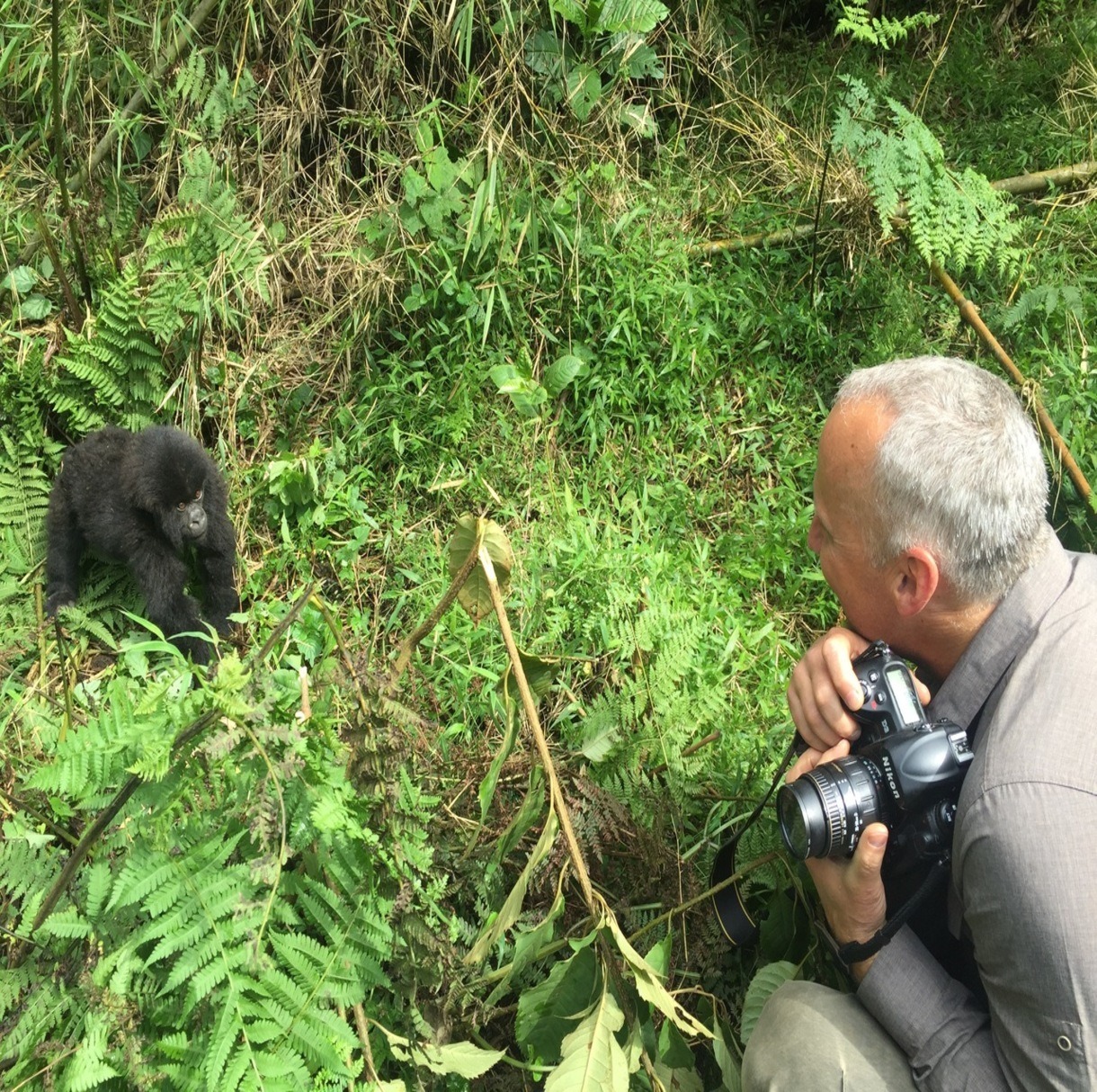SeaDoc Society Director Joe Gaydos traveled to Africa in June to take a look at how sister organizations are operating and what policies could be utilized on Orcas.
Gaydos visited Gorilla Doctors, which services Uganda, the Democratic Republic of Congo and Rwanda, on a fact-finding mission to see what could be learned to help the day-to-day functionality of the SeaDoc Society. He also visited the Health for Animals and Livelihood Improvement project in Tanzania.
“The parallels are fascinating,” Gaydos said of the work that SeaDoc and Gorilla Doctors does. “We already had been doing similar projects.”
One difference Gaydos noticed was that public access to the mountain gorillas was much more limited than public access to orcas. He explained that permits to view gorillas in person cost about $750, and group sizes are limited to eight people, for one hour.
The SeaDoc Society and Gorilla Doctors programs are both part of the Karen C. Drayer Wildlife Health Center at the University of California, Davis School of Veterinary Medicine. The two programs by UC Davis are intended to advance the health of wildlife.
In the Pacific Northwest, SeaDoc works to conserve a variety of species that call the Salish Sea home. In Africa, Gorilla Doctors provides medical care to sick and injured mountain gorillas living in national parks, to facilitate their preservation.
Much like the orcas of the San Juan Islands, the gorillas are a “flagship species,” which makes them very important to their environments, explained Gaydos. A flagship species is one that has been selected as an ambassador or icon for a certain environment.
“You save a whole ecosystem if you save these guys,” Gaydos said.



